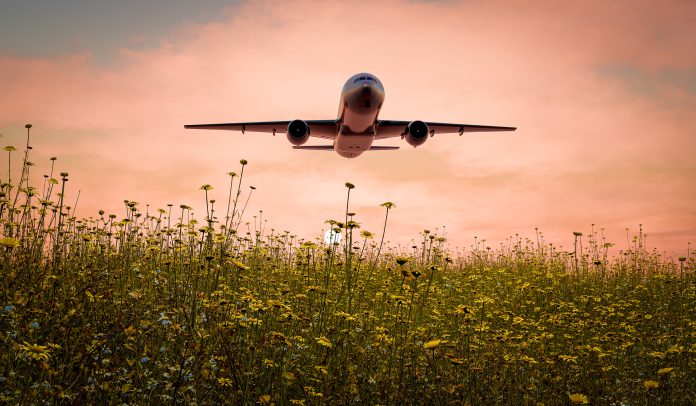New funding under the EU Emissions Trading System supports 53 airlines in their transition to sustainable aviation fuels
The European Union has taken the following steps toward greener air travel by allocating approximately €100 million in emissions allowances to support airlines that used Sustainable Aviation Fuels (SAF) in 2024.
This move is part of a bigger effort to accelerate the aviation sector’s shift away from fossil fuels and reduce its overall climate impact.
The funding comes from the EU’s Emissions Trading System (EU ETS), the bloc’s flagship carbon market mechanism, and is aimed at closing the cost gap between traditional fossil-based jet fuel and SAF. SAF is a low-carbon alternative that can be integrated with existing aircraft technology and infrastructure, offering significant reductions in greenhouse gas emissions throughout its lifecycle.
New support mechanism for airlines
Under the latest amendment to the EU ETS Directive, a new dedicated support system has been introduced to promote the uptake of Sustainable Aviation Fuels . Starting in 2024, the EU set aside 20 million emissions allowances, valued at roughly €1.5 billion, for commercial airlines that use SAF on their flights, subject to carbon pricing under the ETS.
For the first year of the scheme, around 1.3 million allowances, equivalent to approximately €100 million at current carbon prices, were distributed among 53 commercial aircraft operators across the EU. These allowances help offset the additional cost of SAF compared to conventional jet fuel, making it a more financially viable option for airlines.
More benefits for SAF users
Airlines using Sustainable Aviation Fuels under the ETS framework benefit in two ways. First, they receive free allowances to help cover the price gap between SAF and fossil kerosene. Second, emissions from SAF are “zero-rated” under the EU ETS, meaning that airlines do not need to surrender carbon allowances for the emissions associated with the use of SAF.
In 2024, the value of this zero-rating is estimated at around €25 million, adding to the €100 million worth of free allowances granted. Combined, the total incentive for SAF usage under the EU ETS this year reaches approximately €125 million.
This financial boost is designed to encourage more operators to switch to Sustainable Aviation Fuels and to increase overall demand, which could eventually help lower prices through economies of scale and supply chain development.
In addition to direct support through allowances, the EU ETS continues to fund the Innovation Fund, which backs cutting-edge clean technology projects, including those in aviation. This multi-pronged approach aims to drive both immediate adoption of SAF and long-term technological change within the industry.
To maintain transparency and ensure accountability, the European Commission has also published a list of all 53 operators that received allowances, along with the quantities allocated to each. This transparency is intended to build trust in the support system and demonstrate the EU’s commitment to fair and effective climate action.
Sustainable aviation future
The EU’s allocation of €100 million in ETS allowances marks a significant milestone in decarbonising aviation. While Sustainable Aviation Fuels currently represents only a small fraction of total jet fuel use in Europe, mechanisms like these aim to change that by providing concrete financial support.











